This year's harvest of summer crops in the Dithmarschen region is now gradually gaining momentum, as Hannes Nagel of the eponymous vegetable growing and trading company tells us. "Broccoli and pointed cabbage are already being harvested, and by the end of the week we will also deliver the first cauliflower of this year's season. After that, we'll also start harvesting the early white cabbage."
Across the board, there is a harvest delay of one to two weeks this year, again due to the dry weather, he said. Nagel says, "We've had about four millimeters of precipitation twice in a row recently, which has helped a little bit after weeks of drought. Due to the predominantly wet spring, we've fortunately had enough moisture in the soils, which is why all summer crops are doing quite well." Although it is rather too early to make precise volume forecasts, he said, in all likelihood yields will be higher than last year, when about 30 percent of summer crops were blighted.
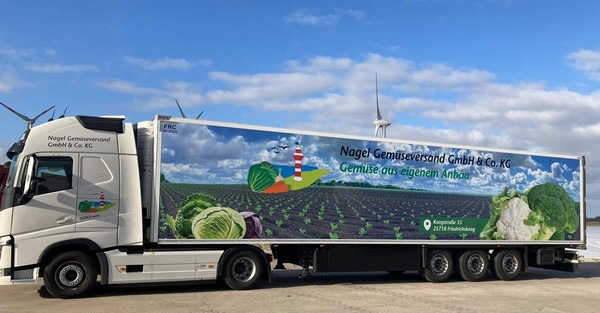 Nagel has its own fleet of refrigerated vehicles and supplies both wholesalers and food retailers.
Nagel has its own fleet of refrigerated vehicles and supplies both wholesalers and food retailers.
Satisfactory price level
The Dithmarschen region is also facing exceptionally high cultivation costs this year, whether fertilizer, diesel or plant protection, Nagel continues. "Overall, however, the current price level is sufficient to be able to cover the additional costs as well as the additional effort accordingly. Sales of broccoli are going quite well, partly supported by promotions in food retail. However, this is just a snapshot. We are only at the beginning of the season and are bringing relatively manageable quantities onto the market. Only as soon as we market larger quantities will we be able to make more precise statements about the price level. The decisive factor is what the masses do afterwards."
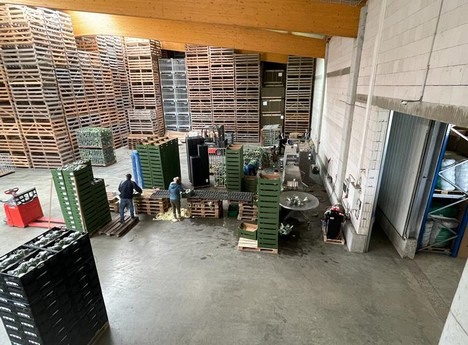 Insight into the processing hall
Insight into the processing hall
The marketing of summer crops is clearly focused on food retailers, which makes a significant difference compared to winter sales, he said. "In August-September, as soon as we start the main harvest of white and red cabbage, the emphasis shifts more toward wholesale," Nagel describes, pointing to the development of acreage in his company. The area under broccoli and cauliflower has expanded significantly in recent years, while white and red cabbage cultivation has grown only slowly, he says. "Due to a lack of availability of fresh vegetables this winter, there has been an increase in the purchase of German stored vegetables, which has also driven prices up accordingly. This has compensated to some extent for the hail damage to summer crops."
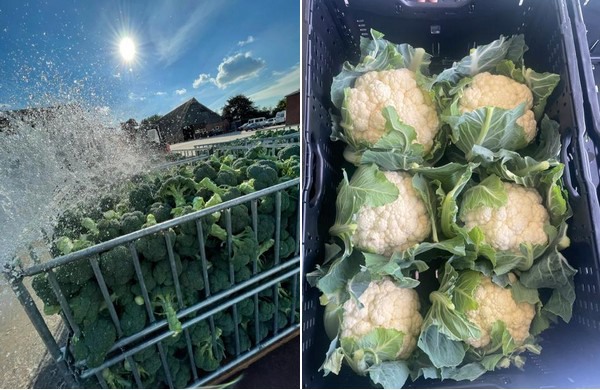
Soil cultivation plays a central role
According to Nagel, climate change will also lead to noticeable weather extremes in the coming years. "We have to adapt to both longer heat and rain phases and manage cultivation accordingly. Irrigation in our growing region poses a significant locational disadvantage in this regard, where we have only drinking water pipelines and our capacities are thus quickly exhausted. In short, we have only limited water resources at our disposal. This makes the issue of soil cultivation all the more important. How do you work the soil sensibly so that as much water as possible can be stored there and thus, in turn, only need to be irrigated once per season?"
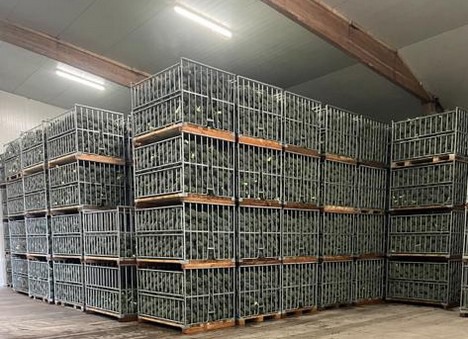 Broccoli fresh from the field
Broccoli fresh from the field
This strategy has already paid off this year, he says, as the fields and crops developed quite well despite the drought. Nagel: "It is also important to plant the crops where the best possible water supply is available. This applies above all to the cultivation of summer crops, because in the case of white as well as red cabbage, quite a bit has to happen before there are actually major losses. So winter crops can also be grown on soils with minimal water supply, while summer crops are ideally planned on light, nice sites."
Images: Nagel Gemüseversand GmbH & Co.KG
Further information:
Hannes Nagel
Nagel Gemueseversand GmbH & Co.KG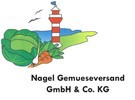
Koogstr. 33
D-25718 Friedrichskoog
Tel: 0049 48 54 – 93 66
Fax: 0049 48 54 – 93 68
Mobil: 0049 172 – 9098025
Mail: hannes@nagel-gemueseversand.de
www.nagel-gemueseversand.de
